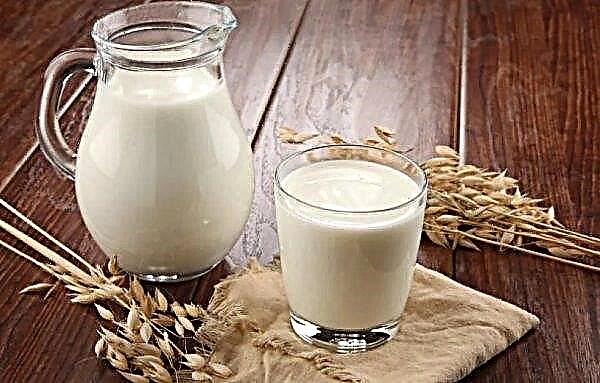Since childhood, everyone knows about the benefits of eggs and that it is a natural protein, but this is where the knowledge of many ends. To eat right and wholesome, it’s important to know the specific benefits and disadvantages of this valuable product. The article will be useful to everyone, especially for those who monitor the amount of protein, fat, carbohydrates in their diet.
Effects on the human body
The digestibility of egg protein - 98% affects the growth of new cells, so it is popular among athletes who build muscle. Chicken eggs are nutritious, they quickly saturate the body and reduce appetite. If you eat such food for breakfast, the benefit from them will be maximum, plus they contribute to a good metabolism.
To give the body the optimal dose of essential trace elements, it is enough to eat one chicken egg per day. Their number may be more, but it is important not to overdo it. The recommended dose for an adult is 2 pcs. per day. Children under 3 years old are better not to give more than one egg per day, and up to 7 years - no more than 15 pieces. in Week. If you are fond of bodybuilding, 5 eggs or even more harm will not bring, but consider the value of other products of your diet - an overabundance of the same elements can lead to an allergic reaction.
If you are fond of bodybuilding, 5 eggs or even more harm will not bring, but consider the value of other products of your diet - an overabundance of the same elements can lead to an allergic reaction.
Important! Chicken eggs may contain a large number of microorganisms and infections, therefore it is advisable to cook them for at least 10 minutes. Boiled “in a pouch” and fried eggs are less safe, not to mention the use of raw ones.
Beneficial features
Even if you are not a fan of healthy eating, at least one egg in your daily diet will provide significant benefits. The product has many advantages:
- a source of natural protein (protein) with a high content of it;
- a large dose of vitamins and minerals is 10% of the daily intake of vitamin D and 5% of the daily intake of vitamin A;
- help maintain eye health - reduced retinal degeneration, preserves the balance of color perception;
- improves brain activity - develops thinking and strengthens memory;
- reduces the risk of osteoporosis;
- reduces the risk of atherosclerosis.
 Contrary to stereotypes, egg white is not a source of problems with high cholesterol. It accumulates from animal proteins and fatty foods, but 1-2 eggs per day will not cause harm.
Contrary to stereotypes, egg white is not a source of problems with high cholesterol. It accumulates from animal proteins and fatty foods, but 1-2 eggs per day will not cause harm.
Harm and contraindications
The egg itself cannot be called harmful to humans, but in modern business there is a risk, and considerable. Products obtained from large-scale farming chickens often contain a high level of third-party elements that have penetrated inside with poor-quality, industrial poultry feeding.
What can be harmful:
- salmonellosis - intestinal infection, which is not terrible if you boil the product well and wash your hands after contact with raw;
- cholesterol (if abused complete with junk food of animal origin, fats);
- nitrates - their highest content in animal products; enter eggs with toxins obtained from food, soil;
- antibiotics (associated with the nutrition and maintenance of poultry; penetrating the human body, destroy microflora, reduce resistance to viruses and susceptibility to drugs);
- hormones - In pursuit of increasing the weight of chickens, genetic modifications of poultry and feed are carried out, so it is much more beneficial to buy a product from a small farm (although here you are not 100% protected).
 There are fewer contraindications to the use of eggs, but they are:
There are fewer contraindications to the use of eggs, but they are:
- allergy or susceptibility to an allergic reaction;
- diseases of the cardiovascular system associated with high cholesterol;
- diabetes mellitus (use carefully);
- hypothyroidism (problems with the thyroid gland).
Important! It is recommended to store eggs in the refrigerator for no more than 15 days. Salmonella does not breed only at temperatures below 6 ° C.
How much protein is in one chicken egg
The protein content in the chicken product is really large - 15-20% of the total composition. This is less than in meat, but not so much, considering that the average weight of one egg is 50-70 grams.
Protein Table:
| Category and weight | Protein, g |
| "B" - the highest - from 75 g | 9,5-12,7 |
| "0" - selective - 65-74.9 g | 8,2-9,5 |
| "1" - the first - 55-64.9 g | 7,0-8,2 |
| "2" - the second - 45-54.9 g | 5,7-7,0 |
| "3" - the third - 35-44.9 g | 4,4-5,7 |
The amount of protein depending on the method of preparation
The method of preparing chicken eggs affects the amount of protein in it:
- in raw - up to 12.7 g;
- in boiled - up to 12.7 g;
- in fried (without oil) - about 14.5 g;
- omelette - 11 g.
 For comparison, below are a few more cooking methods with a change in the amount of protein in this case (upper limit):
For comparison, below are a few more cooking methods with a change in the amount of protein in this case (upper limit):- melange - 12.7 g;
- dry protein - 82.4 g;
- dry yolk - 31.1 g;
- egg powder - 46 g.
Nutrition Facts of Chicken Egg
The benefits of the product are scientifically substantiated - it can be eaten even with dietary nutrition. The composition clearly shows its nutritional value:
| Organic matter | Content, g |
| Protein | 12 |
| Carbohydrates | 0,7 |
| Fats | 11 |
| Water | 44 |
| Cholesterol | 0,5 |
| Ash | 1 |
| Saccharides | 0,7 |
| Fatty acid | 3 |
Mineral and vitamin composition no less rich:
| Minerals | Content mg |
| Choline | 251 |
| Phosphorus | 192 |
| Sulfur | 176 |
| Chlorine | 156 |
| Potassium | 140 |
| Sodium | 134 |
| Calcium | 55 |
| Magnesium | 12 |
| Iron | 2,5 |
| Vitamins | A, B1-B3, B5-B9, B12, D, E, H |
Despite such a rich composition of chicken eggs, plan a full menu, which will include fresh fruits and vegetables, cereals, meat. Substitutes in the form of preservation, sausages to a healthy diet have nothing to do.Did you know? The color of the eggshell depends on the breed of hens: white eggs – from birds with white lobes, brown from birds with red. But the nutritional value of the color of the shell is not absolutely affected.












